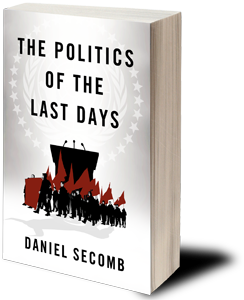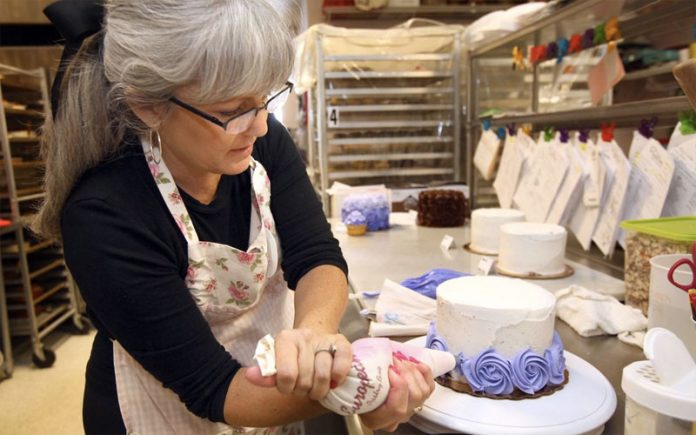In a decision being celebrated as a win for religious freedom advocates, a California judge ruled late Monday that a Christian baker who faced losing her business because she refuses to bake cakes for same-sex weddings cannot be compelled by the state to do so.
The decision comes as the Supreme Court heard oral arguments in December in another Christian baker case, Masterpiece Cakeshop v. Colorado Civil Rights Commission, in an ongoing wrestling match between religious freedom advocates and LGBT activists who insist that Christian bakers should be compelled to bake cakes for all marriages, not just heterosexual unions.
In the California case, Christian baker Cathy Miller, who owns Tastries Bakery in Bakersfield, was facing discrimination charges filed by the state after she refused to make a wedding cake for Eileen and Mireya Rodriguez-Del Rio last August, citing her religious beliefs.
The California Department of Fair Employment and Housing petitioned the court to issue a restraining order against Miller and her bakery to force the company to make cakes for same-sex weddings or stop making wedding cakes altogether if she refused.
“My conscience doesn’t allow me to participate in certain activities that are contrary to my biblical beliefs. I pray that we can all come to an understanding so that we can continue to get along,” Miller explained at the time.
In rejecting the state’s petition against Miller, Superior Court Judge David Lampe said in his opinion that her decision to refuse to bake cakes for same-sex weddings is protected by the First Amendment.
“The First Amendment ensures that religious organizations and persons are given proper protection as they seek to teach the principles that are so fulfilling and so central to their lives and faiths, and to their own deep aspirations to continue the family structure they have long revered,” Lampe wrote.
“Furthermore, here the State minimizes the fact that Miller has provided for an alternative means for potential customers to receive the product they desire through the services of another talented baker who does not share Miller’s belief. Miller is not the only wedding cake creator in Bakersfield. The fact that Rodriguez-Del Rios feel they will suffer indignity from Miller’s choice is not sufficient to deny constitutional protection,” he said.
In the case now before the Supreme Court, Jack Phillips of Masterpiece Cakeshop refused in 2012 to make a same-sex wedding cake arguing that it violated his sincerely held religious beliefs. Two years later, in 2014, the Colorado Civil Rights Commission found him guilty of discrimination, arguing that he violated Colorado’s Anti-Discrimination Act, or CADA. He was ordered to undergo sensitivity training and provide the Commission with updates on any cake orders he refused and provide an explanation for each refusal.
The Colorado Court of Appeals sided with that decision in August 2015 which led Phillips to file a petition for appeal with the state supreme court last October. The Colorado Supreme Court refused to hear Phillips’ appeal, prompting an appeal to the U.S. Supreme Court in July 2016, which was granted last June.
In another controversial Christian baker case which started in 2013, Oregon Court of Appeals Judge Chris Garrett ruled last December that the sincerely held religious beliefs of Aaron and Melissa Klein, former owners of Sweet Cakes by Melissa, were not enough for them to refuse to bake cakes for same-sex weddings.
“The Kleins seek an exemption based on their sincere religious opposition to same-sex marriage; but those with sincere religious objections to marriage between people of different races, ethnicities, or faiths could just as readily demand the same exemption,” Garrett argued in his opinion. “The Kleins do not offer a principled basis for limiting their requested exemption in the manner that they propose, except to argue that there are ‘decent and honorable’ reasons, grounded in religious faith, for opposing same-sex marriage,” the judge continued.
The Kleins lost their business in 2015 after they were ordered by Oregon’s Bureau of Labor and Industries to pay damages totaling $135,000 for refusing to bake a cake for a same-sex wedding.
Lampe argued in his opinion on the Miller case, however, that while the prevention of discrimination was a laudable objective of the state, asking a Christian baker to bake a cake for a same-sex wedding would be a violation of the baker’s right to freedom of expression.
“The State’s purpose to ensure an accessible public marketplace free from discrimination is laudable and necessary public goal. No vendor may refuse to sell their public goods, or services (not fundamentally founded upon speech) based upon their perception of the gender identification of their customer, even upon religious grounds. A retail tire shop may not refuse to sell a tire because the owner does not want to sell tires to same sex couples. There is nothing sacred or expressive about a tire,” Lampe wrote.
“No artist, having placed their work for public sale, may refuse to sell for an unlawful discriminatory purpose. No baker may place their wares in a public display case, open their shop, and then refuse to sell because of race, religion, gender, or gender identification. The difference here is that the cake in question is not yet baked. The State is not petitioning the court to order defendants to sell cake. The State asks this court to compel Miller to use her talents to design and create a cake she has not yet conceived with the knowledge that her work will be displayed in celebration of a marital union her religion forbids. For this court to force such compliance would do violence to the essentials of Free Speech guaranteed under the First Amendment,” he added.
The Freedom of Conscience Defense Fund which represented Miller in the case said Lampe’s ruling represented a win for religious liberty.
“This is a major victory for faith and freedom because the judge indicated in his ruling that the State cannot succeed in this case as a matter of law. No doubt the California officials will continue their persecution of Cathy, but it is clear that she has the Constitution on her side,” Charles LiMandri, chief counsel in the case and president of the Freedom of Conscience Defense Fund said in a statement.
Daniel Piedra, executive director of the Freedom of Conscience Defense Fund said Miller was elated with the decision according to ABC 23.
“Cathy was in her bakery when we called and to say the least, she was jubilant and absolutely elated,” Piedra said.
Source: Christian Post
 Register your interest for Daniel Secomb's new book, "Politics of the Last Days"
Register your interest for Daniel Secomb's new book, "Politics of the Last Days"
Daniel's new book explores the integral and fascinating role that politics will play in the end times.
He demonstrates that political philosophy is actually underpinned by biblcal principles and that by examining the political history of the past can give us a fascinating glimpse into how Biblical end times events will unfold.
Be sure to sign up with your name and email address to be notified of updates and the upcoming release date of the book.


















